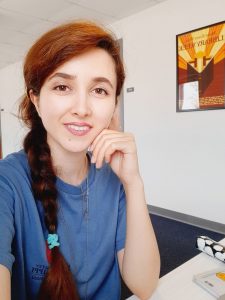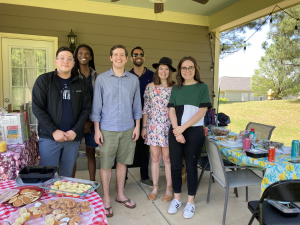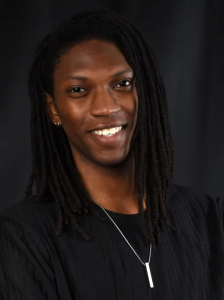People
Andy Hales
 Andy is an Assistant Professor of psychology and directs the Social Connections and Influence lab. He completed his PhD in Social Psychology at Purdue University, and a postdoc at the University of Virginia. Andy’s research addresses three main topics: the psychology of social ostracism, the ways in which people influence each other, either directly or indirectly, and the curious tendency to overlook subtraction as a way to make things better.
Andy is an Assistant Professor of psychology and directs the Social Connections and Influence lab. He completed his PhD in Social Psychology at Purdue University, and a postdoc at the University of Virginia. Andy’s research addresses three main topics: the psychology of social ostracism, the ways in which people influence each other, either directly or indirectly, and the curious tendency to overlook subtraction as a way to make things better.
Sydney Wicks
Sydney is a fourth-year social psychology graduate student in the Experimental Psychology PhD program and is supported by the National Science Foundation Graduate Research Fellowship. He received his B.S. in Psychology with minors in sociology and marketing from Mississippi State University and M.A. in Experimental Psychology from the University of Mississippi. Sydney’s research broadly explores the dynamics of relationships, focusing on how connection is formed, maintained, and dissolved. His current work focuses on close relationships, social exclusion, the influence of network opinions, and media use. Additionally, he investigates effective strategies for helping individuals recover from social exclusion. More information about Sydney can be found on his website.
Sarah Mohammadi

Sarah is a second-year social psychology graduate student in the Experimental Psychology program. Her academic journey had a shift from geography and urban planning for her Bachelor’s at Tehran University to clinical psychology for her Master’s at Kharazmi University. Now her research focuses on individual differences in responses to ostracism. Sarah’s current work examines if experiencing ostracism leads to increased feelings of schadenfreude toward the ostracizer, seeking to understand coping after being ostracized. Her main interests include ostracism and its coping responses specifically aggressive behaviors. In her free time, Sarah enjoys outdoor activities and cooking.
Alumni
Dr. Natasha Wood (completed PhD, 2024)
 Natasha Wood is currently a postdoctoral research at Leiden University.
Natasha Wood is currently a postdoctoral research at Leiden University.
More information about Natasha can be found on her website.


